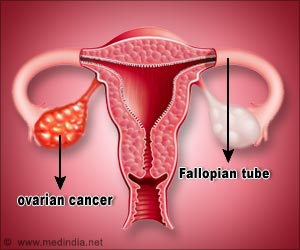The risk of ovarian cancer was 29 percent lower among women with a college degree or more compared with those who had a high school degree or less.

‘The risk of ovarian cancer is lower among women with a household income of $75,000 or greater compared with household incomes of $10,000 or less.’





The population-based case-control study took place in Alabama, Georgia, North Carolina, Louisiana, Michigan, New Jersey, Ohio, South Carolina, Tennessee and Texas. The study participants, all of whom self-identified as African American, included 513 women diagnosed with ovarian cancer and a comparison group of 721 women without cancer. The inverse association with SES held true even after controlling for factors known to be associated with ovarian cancer risk, such as body mass index and a family history of ovarian or breast cancer. "For most types of cancer, people with lower SES are at greater risk," said Alberg. "However, the opposite is true for breast cancer, another hormone-related type of cancer that shares many common risk factors with ovarian cancer. The evidence to date for ovarian cancer is limited and has not yielded clear-cut results. This study represents a major step forward in helping to shed light on the relationship between SES and ovarian cancer, with results clearly pointing in the direction of higher disease risk in women of lower SES -- the opposite of what we see for breast cancer."
None of the previous studies addressing this question focused on women of African ancestry. By establishing an association between lower SES and higher disease risk in African American women, the study led by Alberg raises questions about SES and ovarian cancer risk in other populations that will need to be answered in future studies. "Important next steps will be to establish whether this same association holds true in women of other races and ethnicities," said Alberg. "Then we will need to determine the root causes of this relationship between socioeconomic status and ovarian cancer so that we can learn if this may lead to new clues about prevention."
Source-Eurekalert














